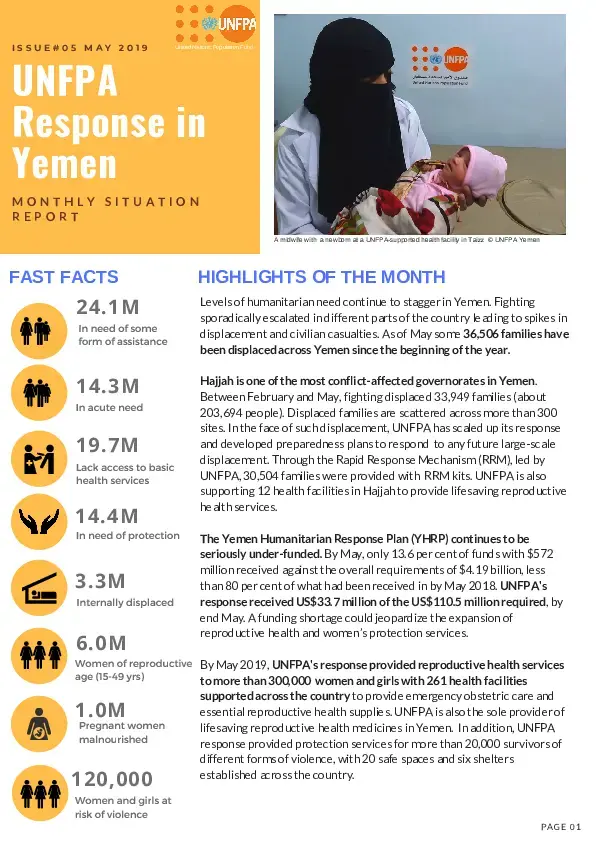Levels of humanitarian need continue to stagger in Yemen. Fighting sporadically escalated in different parts of the country leading to spikes in displacement and civilian casualties. As of May some 36,506 families have been displaced across Yemen since the beginning of the year.
Hajjah is one of the most conflict-affected governorates in Yemen. Between February and May, fighting displaced 33,949 families (about 203,694 people). Displaced families are scattered across more than 300 sites. In the face of such displacement, UNFPA has scaled up its response
and developed preparedness plans to respond to any future large-scale displacement. Through the Rapid Response Mechanism (RRM), led by UNFPA, 30,504 families were provided with RRM kits. UNFPA is also supporting 12 health facilities in Hajjah to provide lifesaving reproductive health services.
The Yemen Humanitarian Response Plan (YHRP) continues to be seriously under-funded. By May, only 13.6 per cent of funds with $572 million received against the overall requirements of $4.19 billion, less than 80 per cent of what had been received in by May 2018. UNFPA's
response received US$33.7 million of the US$110.5 million required, by end May. A funding shortage could jeopardize the expansion of reproductive health and women’s protection services.
By May 2019, UNFPA's response provided reproductive health services to more than 300,000 women and girls with 261 health facilities supported across the country to provide emergency obstetric care and essential reproductive health supplies. UNFPA is also the sole provider of lifesaving reproductive health medicines in Yemen. In addition, UNFPA response provided protection services for more than 20,000 survivors of different forms of violence, with 20 safe spaces and six shelters established across the country.



